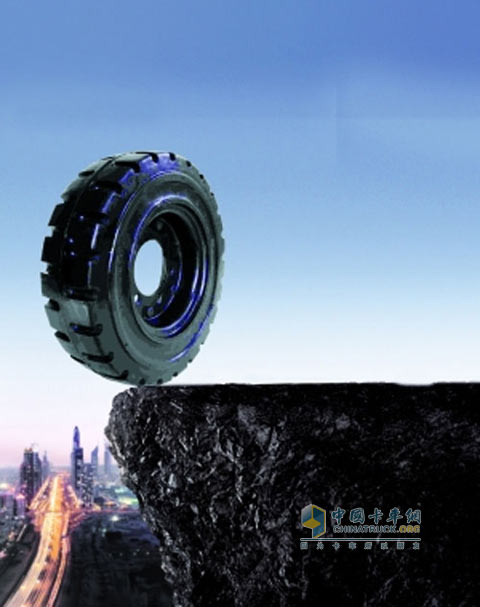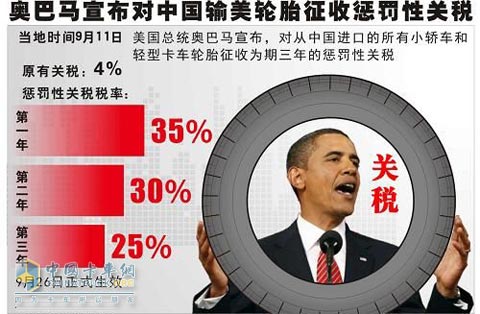Painful and happy - this August, Chinese tire companies can be described as ill-fated. Happiness stems from the "atypical" case of a Chinese company winning the US Department of Commerce. The U.S. International Trade Court recently ruled that China’s Hebei Xingmao Co., Ltd. and Tianjin United Tire & Rubber Co. v. the US Department of Commerce ruled that the United States could not reasonably solve the double counting problem and should revoke the anti-subsidy bill. The pain is twofold. For Chinese tire companies that insist on active defense, although the current "double reverse" case has won a phased victory, the "position" of the international market that has been lost in the past two years has been difficult to recover. Compared to the "double reverse" investigation, the "special protection case" that began in September 2009 caused more harm to Chinese companies. At the same time, the soaring prices of raw materials have also become unacceptable for domestic tire companies. Industry insiders said bluntly: In 2010, the tire industry's profits have been unavoidable. Double-win victory lost 80% Affected by the United States tire special security case, in the first half of 2010, China's tires exported to the United States showed a "volatility in volume and price", and the current export volume fell sharply by 70% to 80% before the "special protection case." On August 17, Yao Jian, spokesman for the Ministry of Commerce of the People's Republic of China, welcomed and appreciated the ruling of the United States Court of International Trade. Yao Jian reiterated that the US Department of Commerce’s anti-dumping and anti-subsidy “double counter†investigations against Chinese tire companies are discriminatory against Chinese companies. In particular, he mentioned that countervailing duty is a taxation for market economy countries. The US Department of Commerce regards China as a "non-market economy country" and should not impose countervailing duties on Chinese products. According to reports, the US International Trade Court ruled on August 5, local time, that China’s Hebei Xingmao Co., Ltd. and Tianjin United Tire & Rubber Co., Ltd. sued the U.S. Department of Commerce’s double taxation case in the United States and ruled that the United States could not reasonably solve the double counting problem. Withdrawal of countervailing decree. Before September 4, the US Department of Commerce must terminate the anti-subsidy tax on companies involved if it does not file an appeal with the court of second instance. As Yao Jian said, this case is applicable to the tire industry. It exposes a mistake in US trade disputes: The US Department of Commerce counteracts China’s trade without effectively modifying the anti-dumping investigation rules of the non-market economy to avoid double counting. Subsidy investigations are illegal. "This is a very significant victory." The industry generally stated that the case is beneficial to the entire industry and hopes that the final result can eliminate countervailing duties on Chinese exports. However, such a "significant victory" was difficult for China's tire companies to laugh, because in front of them, there is a heavier level. U.S. President Barack Obama announced in September 2009 that he had imposed a three-year punitive tariff on China's imported tires on the ground of "protecting employment." This was the first time the United States had used China's accession to the WTO to apply the "safeguards clause" in 2001 ( That is, specific product transitional safeguard measures) impose punitive tariffs on Chinese products. Compared with the “double reverse†investigation initiated by the US Department of Commerce, the “special protection case†caused more damage to Chinese tires. Zhong Yingzhi, a researcher in the chemical industry of China Investment Advisors, told reporters that due to the impact of tire protection, the volume of tires exported to the United States in the first half of 2010 was in a downward trend. At present, China’s tire export volume is higher than the “special security caseâ€. A drop of 70% to 80%. More grimly, in the United States, where the unemployment rate is still high and the economy has not yet bottomed out, in the future China will face a more severe trading environment and export resistance will increase. “Our export enterprises need to make more efforts to adjust product structure and diversify market development to get rid of the unfavorable situation.†Liang Liangguang, general manager of Twinstar Tire, revealed to reporters that since the second half of 2009, Twinstar Tire has increased its presence in South America and Africa. Investment in markets such as Southeast Asia and Eastern Europe. “In the first half of 2010, the export volume of Double Star Tire increased by 96% compared with the same period of last year. This is the most powerful counterattack against the 'Special Protection Case'.†Quiet price increase will inevitably be 100% Soaring costs have become an unacceptable weight for the tire industry in 2010. In April alone, the price of natural rubber climbed to about 25,900 yuan/ton, which was a year-on-year increase of more than 100%. While the situation in exports to Europe and the United States is not optimistic, the Chinese tire industry is also facing the dilemma of soaring raw material costs such as rubber. Price increase has become a "must-choice" that has to be done. According to a survey by the reporter, at the end of July, tire prices have risen in Shanghai, Shandong, Chongqing, Jiangsu, Anhui and other places. The rate of increase has ranged from tens of yuan to a few hundred yuan. “Currently, the collective price increase of tire companies is just a start.†Some industry insiders expect that as the price of raw materials in 2010 rose by more than 40% from last year, the price of tires may have room for further increase. Cai Weimin, secretary-general of the Rubber Association of China Rubber Federation, told reporters that the outstanding problems faced by the tire industry in 2010 were a substantial increase in costs and a drop in profit growth. In April alone, the price of natural rubber climbed to about 25,900 yuan per ton, a year-on-year increase of over 100%. At the same time, the costs of water, electricity, and gas are also increasing. Coupled with drastically higher labor costs, tire companies have complained. It is understood that since the fourth quarter of 2009, multinational companies have adjusted tire prices, with an average increase of more than 10%. Recently, a group of multinational companies announced that they will increase tire prices by 5% to 8%. Cai Weimin said that raw material prices are now so high that domestic and foreign dealers feel that the increase in tire prices is acceptable. “The tire inflation tide is not the first time in 2010.†Yu Yan, a rubber industry analyst at Beijing Mid-term Futures, told reporters that the price increase at the beginning of the year was mainly for “special protection†sanctions. As for the recent price increase, the main reason is that the price of natural rubber in the international market has increased by about 20% year-on-year. "The cost pressure on tire companies has increased significantly, and profits have also been squeezed." Businesses deeply understand this. “As the economy is undergoing structural adjustments, it may face the problem of insufficient demand in the later period; natural rubber prices remain high, and profits in 2010 will surely drop very sharply.†The relevant persons of the Double Money Group expressed deep concern about the future performance. Fengshen Tire also stated that the development environment facing domestic tire companies will be more complicated. Welded Butterfly Valve,Stainless Butterfly Valve,Water Butterfly Valve Didtek Valve Co., Ltd , http://www.zyfam.com
